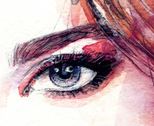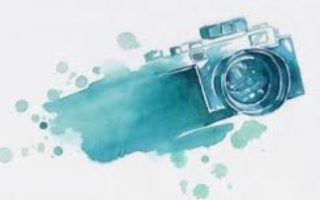Some Toastmasters have given well over 60 speeches at club events. I’ve completed- 9. I have a long way to go before I feel competition worthy. During my first speech, one of the things that my Evaluator remarked upon was my eye contact. Among the myriad of mistakes I made, he noted that my eye contact was great. He caught me talking to different points in the room and rated me highly in this area. I was shocked to hear that. I don’t recall looking at a single person in the room during that speech.
Okay, I cheated. How?
When I need to make eye contact with strangers and people I don’t know I look past them. I look at an empty chair in row two. The folks in row one think I’m looking past them. The audience behind row two just assumes my gaze wasn’t meant for them yet. When it’s time to look at the people in the back, doors and doorknobs tend to be an appropriate height.
I find it much harder to make eye contact when I have a friend or loved one in the audience. If someone I know well is listening to me speak, I tend to avoid looking directly at them. I worry that some inside joke or memory might creep into my head and pull away my focus. A cell phone going off is a distraction that will end on a moment or two. A friend in the audience is a distraction that will endure through the entire speech. I overcome this by making eye contact with the person seated next to them.
I have watched a number of Toastmasters present their speeches now. At meetings we have a Time Counter who works to keep us on task. They will hold a card or flash a paddle indicating a certain time point has occurred in the speech. This sudden movement is awfully distracting and draws my eye attention almost immediately. The focus in the room moves from me to the Time Counter and some of my audience members made this visual leap with me. This is actually a type of eye-contact that I have been working to avoid. When I come up with some good tips to avoid looking at distracting room elements, I will come back and share those as well.
For now, I will simply leave you with an echo of the best advice I’ve ever heard on this topic- “Fake it until you make it.” One of the things that I am consistently given compliments on when I’m speaking is a lie. I don’t look people in the eye as I’m speaking- instead I look at objects in the room. Try it out and see if this little trick can help you as well.



